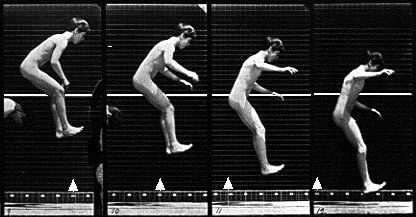
Fashioning the Body: Versions of the Citizen, the Self, and the Subject
The Evergreen State College | Fall 2007-Winter 2008
User Login |
Foucault and bioremediation artCorpus “Reclaiming a Toxic Legacy” Orion, October http://www.orionmagazine.org/index.php/articles/article/460 (Trying to stay rooted in materiality and material applications of theory, I’ve been reading magazines and articles in Orion, The Nation, Democracy Now, Ms. And Hold Everything Dear: Dispatches on Survival and Resistance, a newly released book by John Berger.) This article is about a bioremediation art project in a Pennsylvania town, left to rot in abject poverty and poisoned land by the coal industry that employed it for a century. Until this past year or so, there was no longer any town government, no parks, few jobs, and acid drainage poured from abandoned mine into the local water source. With the help of a few very dedicated designers, engineers, artists, and state employees, a hybrid bioremediation art project/ sculpture, of unprecedented scale, born of progressive social theory and conceptual art, was hatched and raised up over 10 years in the community. With tractors and backhoes as sculptural tools, this site was reshaped into a bicycle greenway (Ghost Town Rail Trail, which today attracts seventy-five thousand bicyclists a year), with limestone water filtration instead of toxic lime neutralization, and 1000 trees that are a sort of “’litmus garden,’ where the fall color of the trees would reflect the color of the acidic water as it turned from a reddish-orange, to yellow, to silver green.” Near the six key-stone shaped ponds, there is “a mosaic that illustrates what these thirty-five acres looked like at the height of the coal boom. The nine-by-fifteen-foot mosaic is modeled on a 1928 Sanborn Insurance map. It depicts with a line of brown and black tiles the coke ovens whose foundations are still visible in the wetland area beyond the mosaic.” Reading this article with Foucault’s ideas of power-knowledge-discourse in mind, I think this example of resistance is the kind of thing he would like. The project is based on principles of interdisciplinary work in the service of the community’s own aspirations to fix their environment: “Art as an experience in place and time, effectively transforming people’s lives.” Thinking about discourse: Foucault is interested in the specifics- the most local and tactical experience of force-relations. How does discourse get made in this town? A history of being beaten down, without much to hope limited their conceptions of what was possible for them. As they were listened to and asked what they wanted for their community, they had to “bump up against their own preconceptions about themselves and about the community.” This was a land where even during the days of coal when there were jobs, people starved to death- people's babies starved to death. “This was an area of bloody union wars in the 1930's- “If you were civically engaged in a coal camp, “ noted Comp, “you were likely to get fired, blacklisted, and be homeless.” So the tendency to keep one’s mouth shut, to grudgingly accept terms set by others, became part of the Appalachian character.” This community hybrid science/art project shows how discourse can be interrupted and altered at the most local level, even when it seems that control over bodies, production, and knowledge is nearly complete and seamlessly integrated into the lived experience of generations. This resistance is model of diffused power, grassroots style that shows how much can change when knowledge and power are shared by those who have it- not in tired tropes of tithing and community service, but in radical new concepts born of dialogue and listening. (What the Highlander Center calls “participatory education.”) This means reconceptualizing Art- a transformation from “art for art’s sake” to “art has a job to do.” “To understand the world as a canvas is to think very differently about its composition and one’s place within that composition.” Science and art often speak entirely different languages, with the importance of both being lost in translation. It is especially important to bridge this gap in higher education, where the next generation of individuals with power and knowledge to share are being trained. On a personal note, being from Appalachia, the trials of the people of this area are important to me. A big part of my life plan is to go to Graduate school to study bioremediation to help this area- so I found this article particularly valuable.
Submitted by Jenny on Fri, 12/07/2007 - 12:17am. Jenny's blog | login or register to post comments | printer friendly version
|
Who's onlineThere are currently 0 users and 1 guest online.
Events
|
|||||||||||||||||||||||||||||||||||||||||||||||||